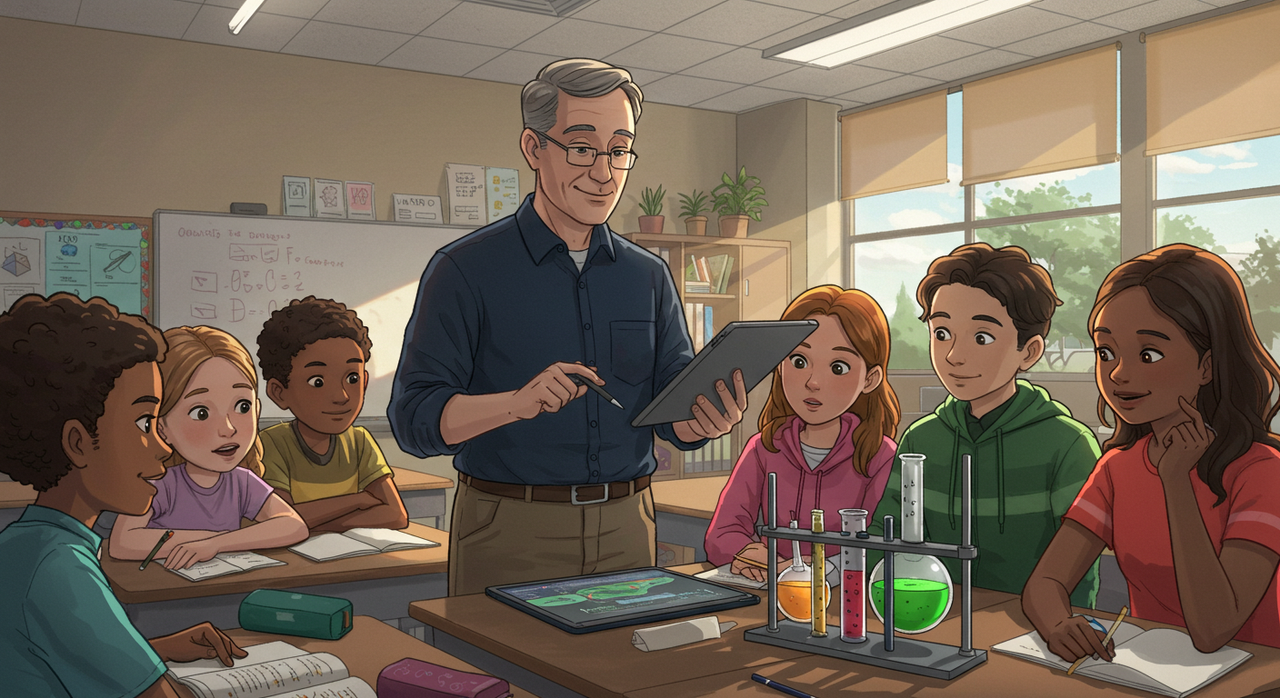The landscape of education is undergoing a profound transformation, driven by rapid technological advancements, evolving societal needs, and a deeper understanding of how individuals learn. Gone are the days of one-size-fits-all classrooms and rote memorization. The future of education promises a dynamic, personalized, and engaging experience that empowers learners of all ages to thrive in an increasingly complex world. Let’s explore some of the key trends and possibilities shaping this exciting future.
Personalized Learning Pathways: Tailoring Education to the Individual
One of the most significant shifts in the future of education is the move towards personalized learning. Recognizing that each student has unique strengths, weaknesses, learning styles, and paces, educators and technologists are developing systems that adapt to individual needs.
- AI-Powered Learning Platforms: Artificial intelligence (AI) is playing a crucial role in creating adaptive learning platforms. These systems can analyze a student’s progress, identify areas where they need support, and tailor content and activities accordingly. AI tutors can provide personalized feedback and guidance, acting as a virtual learning companion.
- Flexible Curricula: Future curricula will likely be more flexible and modular, allowing students to choose learning pathways that align with their interests and career aspirations. This could involve a blend of core subjects with more specialized modules and interdisciplinary learning opportunities.
- Data-Driven Insights: Educators will have access to rich data on student performance and engagement, enabling them to make more informed decisions about instructional strategies and interventions. Learning analytics will provide valuable insights into what works best for different learners.
- Competency-Based Education: The focus may shift from seat time to demonstrating mastery of specific skills and knowledge. Students will progress at their own pace, advancing to new concepts once they have demonstrated competency in the current ones.

Technology as an Enabler: Expanding Access and Engagement
Technology will continue to be a powerful catalyst in reshaping education, breaking down geographical barriers and fostering more engaging learning experiences.
- Immersive Learning Environments: Virtual Reality (VR) and Augmented Reality (AR) will create immersive and interactive learning environments. Imagine exploring ancient civilizations in VR or dissecting a virtual heart in AR. These technologies can bring abstract concepts to life and enhance student engagement.
- Online and Blended Learning: The rise of online learning platforms has already expanded access to education. The future will likely see a further evolution of blended learning models, combining the best of in-person interaction with the flexibility and resources of online learning.
- Gamification and Interactive Content: Incorporating game-like elements and interactive simulations can make learning more fun and engaging, motivating students to actively participate and problem-solve.
- Global Collaboration: Technology will facilitate seamless collaboration between students and educators across geographical boundaries, fostering global perspectives and intercultural understanding.
- Accessible Education for All: Technology can play a vital role in making education more accessible to students with disabilities through assistive technologies and personalized learning tools.

Beyond the Textbook: Cultivating Essential Skills
The future of education will place a greater emphasis on developing skills that are crucial for success in the 21st century, going beyond traditional academic knowledge.
- Critical Thinking and Problem-Solving: Students will be encouraged to analyze information, evaluate arguments, and develop creative solutions to complex problems.
- Creativity and Innovation: Fostering imagination, experimentation, and the ability to generate new ideas will be paramount.
- Collaboration and Communication: Learning will increasingly involve teamwork, effective communication, and the ability to work with diverse groups.
- Digital Literacy and Media Fluency: Navigating the digital world responsibly, evaluating online information, and creating digital content will be essential skills.
- Social and Emotional Learning (SEL): Recognizing the importance of well-being, the future of education will integrate SEL to help students develop self-awareness, self-regulation, social skills, empathy, and responsible decision-making.
- Lifelong Learning: Education will be viewed as a continuous process, with an emphasis on developing a growth mindset and the ability to adapt to lifelong learning and career changes.

The Evolving Role of Educators
The role of educators will also evolve in this future landscape. They will move beyond being lecturers to become facilitators, mentors, and guides, supporting students on their personalized learning journeys.
- Personalized Learning Facilitators: Educators will design and curate learning experiences tailored to individual student needs and interests.
- Data Interpreters: They will need to analyze learning data to understand student progress and adjust their teaching strategies accordingly.
- Technology Integrators: Educators will be proficient in using various technologies to enhance learning and engagement.
- Collaborators and Connectors: They will foster collaboration among students and connect them with real-world experts and learning opportunities.
- Cultivators of Essential Skills: Educators will actively promote the development of critical thinking, creativity, communication, and other essential 21st-century skills.

Challenges and Opportunities
While the future of education holds immense promise, there are also challenges to address:
- Ensuring Equity and Access: It’s crucial to ensure that all students, regardless of their socioeconomic background or location, have access to the benefits of future educational innovations.
- Teacher Training and Professional Development: Educators need adequate training and ongoing professional development to effectively utilize new technologies and implement personalized learning approaches.
- Data Privacy and Security: As learning becomes more data-driven, ensuring the privacy and security of student data is paramount.
- The Human Element: While technology plays a vital role, preserving the human connection and the social and emotional aspects of learning remains essential.
Despite these challenges, the opportunities presented by the future of education are vast. By embracing innovation, focusing on individual needs, and cultivating essential skills, we can empower the next generation to become lifelong learners, critical thinkers, and engaged citizens ready to shape a better future.
What aspects of the future of education excite you the most? Share your thoughts and ideas in the comments below!
